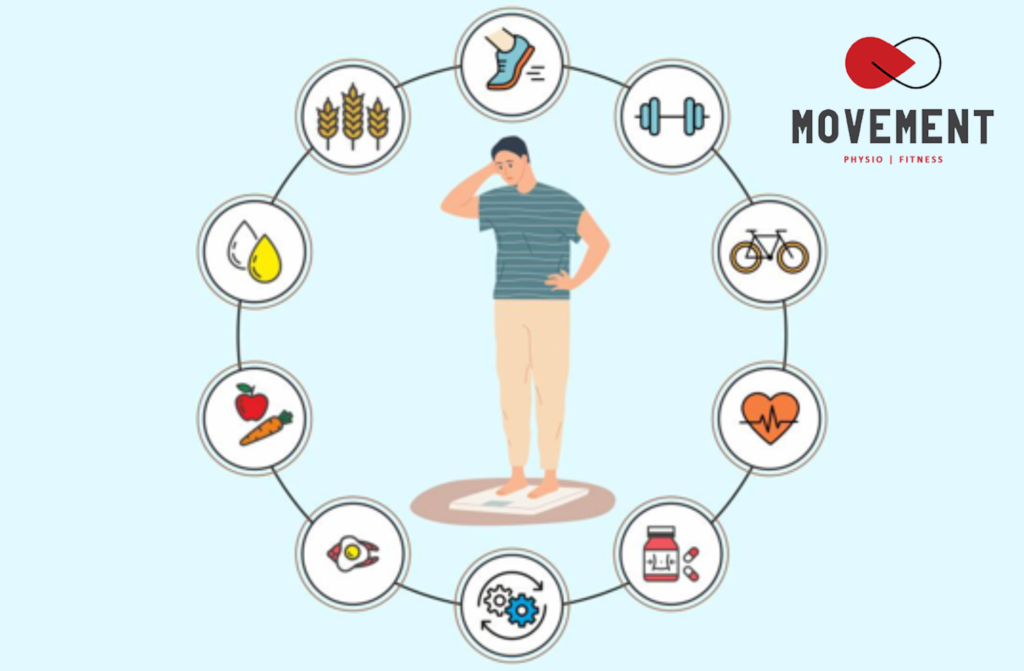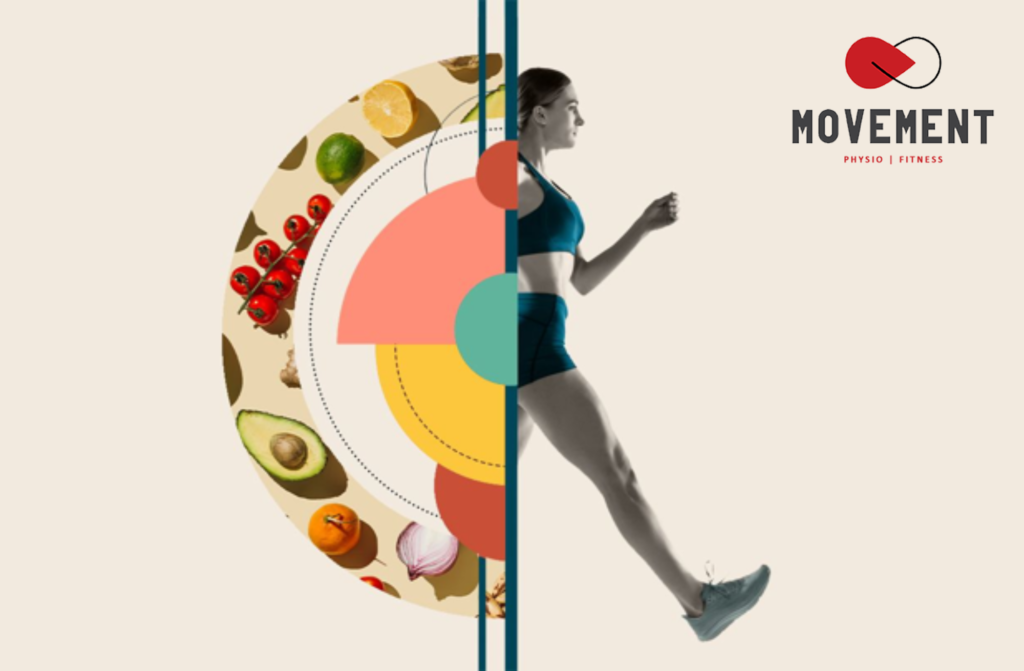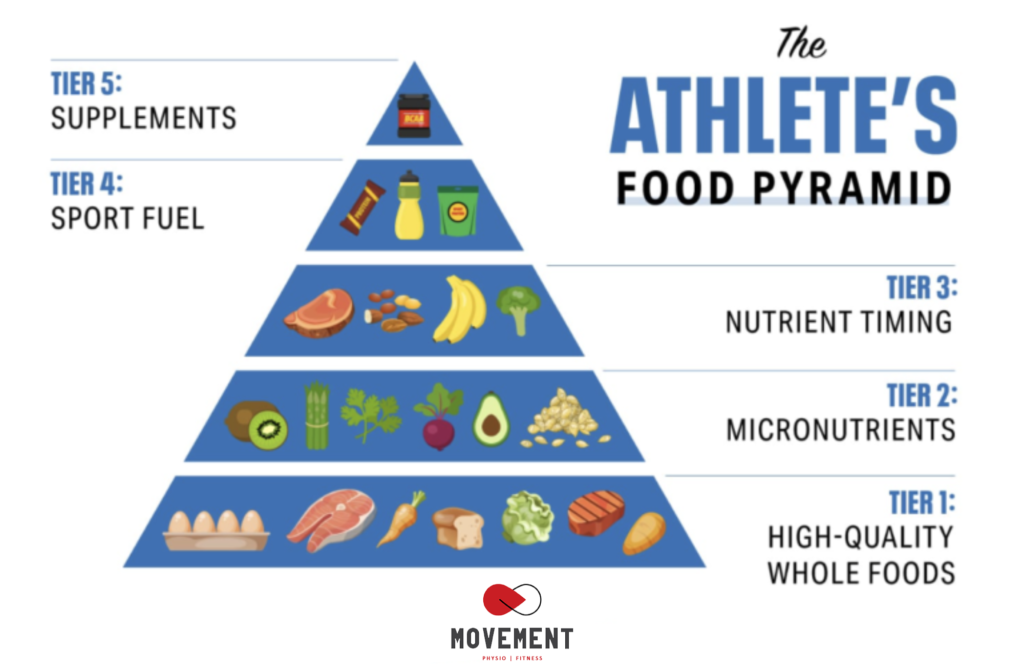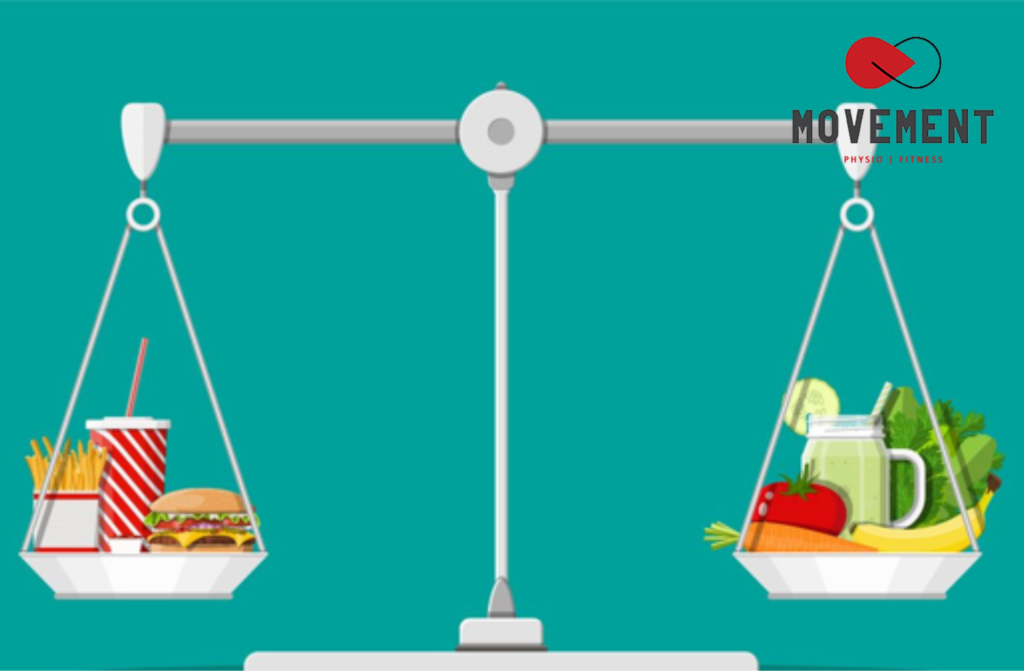Does it annoy you when someone tells you something about a subject that you know is not true, and yet they still insist that it is true?
Weight loss myths are among the top few subjects that some people are misled with and still are today.
These myths are getting out of hand to the point that it is tough to change the way how older people think about weight loss and the beliefs instilled in them many years ago.
| Content | Descriptions |
| 1. All Calories Are Not Created Equal | Discuss the nuanced differences between calories from various sources and how the body metabolizes them differently, emphasizing the importance of nutrient density. |
| 2. Weight Loss Isn’t Always Steady | Address the common expectation of linear weight loss, explaining why fluctuations are normal and highlighting factors that influence weight variability. |
| 3. Supplements Aren’t Magic for Weight Loss | Debunk the myth that supplements can replace diet and exercise, stressing the importance of using them as adjuncts rather than solutions. |
| 4. The Willpower Myth in Obesity | Challenge the notion that obesity is simply a result of lacking willpower, exploring the complex interplay of genetics, environment, and psychology. |
| 5. The “Eat Less, Move More” Oversimplification | Critique this common advice by delving into why weight loss and health are more complex than just calorie intake and expenditure. |
| 6. The Carb Confusion | Clarify the misconceptions about carbohydrates, distinguishing between simple and complex carbs and their effects on health. |
| 7. The Fat Fallacy | Dispel myths about dietary fats, differentiating between healthy fats and harmful ones, and their roles in a balanced diet. |
| 8. Breakfast: To Eat or Not to Eat? | Examine the debate around the importance of breakfast, presenting evidence for and against this conventional wisdom. |
| 9. Fast Food: Not Always a Bad Guy | Provide a nuanced view of fast food, acknowledging its potential for both convenience and nutritional pitfalls. |
| 10. The Diet Dilemma | Explore the challenges and contradictions within popular diets, encouraging a more personalized and sustainable approach to nutrition. |
| 11. Size Doesn’t Equal Health | Discuss the misconception that body size directly correlates with health, promoting a broader understanding of health indicators. |
| 12. The Truth About ‘Diet’ Foods | Investigate the reality behind ‘diet’ foods, highlighting how they may not always be the healthier choice and can sometimes be misleading. |
As we debunk the myths together, please note that this article is backed by scientific research, and you may view the research by clicking on the hyperlinks.

All calories are not created equal
Think of calories as energy. Even though all calories have the same amount of power, they don’t affect your body the same way.
Different foods change how your body works and how you feel about hunger. For instance, calories from protein differ from calories from fats or carbs.
Eating more protein can help speed up your metabolism, make you less hungry, and help balance hormones that control weight.
And calories from fresh fruits fill you up more than calories from candy.
1. In simple terms:
Where your calories come from matters a lot. For example, protein helps you burn more calories and feel fuller.
Weight loss isn’t always steady
When trying to lose weight, it’s normal to fluctuate slightly.
Don’t worry if you see a few extra pounds on the scale now and then. It could be because you ate more or are holding onto more water, which is normal.
This is even more common for women due to changes in water weight throughout their menstrual cycle.
The critical thing is that you should see a downward trend in your weight over time.
2. In simple terms:
Your weight will naturally go up and down as you’re losing weight. It generally goes down over time.
Supplements aren’t magic for weight loss
There’s a huge market for weight loss supplements, but they often don’t live up to the hype.
Sometimes, believing a supplement will help can make people pay more attention to their diet, which can cause some weight loss. However, most supplements have a negligible effect on their own.
A few might help, but they will make a slight difference.
3. In simple terms:
Weight loss supplements usually don’t work as well as they say. Eating right and exercising are the best ways to lose weight.
The willpower myth in obesity
Thinking that losing weight is all about willpower is like saying a flower can bloom without sunlight. It’s much more complex.
Obesity isn’t just about making choices; it’s a tangled web of factors, including your genes and health conditions like thyroid issues or PCOS. These factors can make gaining weight easier and losing it much harder.
Imagine a hormone called leptin that’s supposed to tell your brain, “We’re all good on fat here!” But if your body is ignoring leptin, your brain gets the wrong message – “We need more food!” – making you feel hungry even when you don’t need to eat.
So, it’s not just about gritting your teeth and eating less. It’s about understanding your body’s unique challenges.
4. In simple terms:
Losing weight isn’t just about trying harder; it’s about the complex dance of factors inside your body.
The “eat less, move more” oversimplification:
At its core, weight loss is about burning more calories than you consume. But if it were that easy, wouldn’t everyone be doing it?
Telling someone with a severe weight problem to eat less and move more is like telling a fish to climb a tree. It doesn’t consider the deep-rooted challenges that often lead to gaining back any lost weight.
Imagine trying to solve a puzzle with a piece that just doesn’t fit. It would help if you had a strategy that understands and addresses all the pieces—your body’s responses, habits, and mental side.
5. In simple terms:
There’s more to losing weight than just eating less and moving more. It’s about finding what works for your unique puzzle.

The carb confusion:
Low-carb diets have become stars in weight loss and can work without counting every calorie. Especially if you keep the carbs down and the protein up.
But don’t get it twisted – carbs aren’t the villain. Humans have munched on carbs forever. It’s the type of carbs that matters.
While whole carbs like fruits and veggies are heroes, refined carbs like white bread and sweets can be troublemakers for your weight.
6. In simple terms:
Not all carbs are bad. It’s about choosing the right kinds and amounts that your body needs. At Movement, we can help you calculate exactly what you need to crush your goals
The fat fallacy:
Fat’s got a bad rap. Yes, it’s richer in calories than carbs or protein, but that doesn’t mean it’s the villain in your diet. Eating fat will only make you fat if you over-eat. Just like anything can make you fat when you over-eat, fat is no different in that regard
Think about it: some diets high in fat but low in carbs help people lose weight. So, it’s not about banning fat; it’s about choosing the right kinds and keeping your overall calories in check.
7. In simple terms:
Fat isn’t the enemy. It’s all about balance and choosing healthy fats to keep you feeling good.

Breakfast: To eat or not to eat?
Research indicates that individuals who skip breakfast tend to be heavier than those who don’t.
However, this might be linked to the fact that breakfast eaters often engage in additional healthy lifestyle practices.
A detailed 4-month investigation involving 309 adults examined the impact of breakfast on weight and discovered no significant difference between those who ate breakfast and those who skipped it.
Additionally, the belief that breakfast kick-starts your metabolism or that consuming several smaller meals throughout the day increases calorie burn is unfounded.
The most effective approach is to listen to your body: Eat when you feel hungry and stop when you’re satisfied. Choosing to eat breakfast is fine, but don’t count on it significantly influencing your weight.
8. In simple terms:
Although it’s a common belief that those who skip breakfast typically weigh more than those who don’t, research conducted in controlled environments indicates that the decision to eat or skip breakfast does not significantly impact weight loss.
Fast food: Not always a bad guy
Believe it or not, not all fast food is a no-go. As people have become more health-conscious, many fast food spots have added better menu options.
You can find something reasonably healthy at most places now, so don’t stress if fast food is your only option at times.
9. In simple terms:
Fast food can be part of a healthy diet if you choose wisely. It’s all about the choices you make.
The diet dilemma
The weight loss industry spins a captivating tale, one that whispers seductively, “Diets are the magic potion to your weight woes.” Yet, delve a bit deeper into the annals of research, and a different narrative unfolds—one far less enchanting.
Consider this: a staggering 85% of individuals who tighten the reins on their eating habits find themselves ensnared in a frustrating cycle, regaining the lost pounds within a mere year—a statistic that lends credence to the skepticism surrounding the efficacy of diets.
Further studies unfurl a rather ironic twist in the tale of dieting. Those who frequently diet are, paradoxically, more likely to pack on pounds in the future. It’s as though dieting, rather than being a beacon of weight loss, is a harbinger of weight gain.
This begs the question: Should we continue to court dieting with the hope of losing weight? Perhaps it’s time to pivot our approach, to shift our narrative from fleeting dietary changes to a more enduring transformation of our lifestyle.
Envision a journey toward becoming a version of ourselves that’s not just lighter but healthier, more content, and vibrantly alive.
Imagine this: by simply elevating your physical activity, embracing a nourishing diet, and reveling in the rejuvenating power of sleep, weight loss becomes not an elusive goal but a natural, effortless byproduct of your new way of life.
The truth slowly dawns—dieting is perhaps a misguided venture in the quest for long-term weight loss.
10. In simple terms:
Long-term changes beat short-term diets every time. Focus on being healthy, not just dieting.

Size doesn’t equal health
Imagine obesity like a storm cloud that brings along some serious health problems, such as type 2 diabetes, heart diseases, and different types of cancers. But here’s a twist in the story: not everyone who is obese faces these health issues.
Some people who are obese are still healthy inside, while some thin people get these diseases.
Now, where your body stores fat matters a lot. If you have more fat around your belly, you’re at a higher risk of getting these health problems. It’s like the danger increases when the fat is stored in certain parts of your body.
11. In simple terms:
Weight isn’t the only indicator of health. Everyone’s body is different, and health comes in all sizes.
The truth about ‘diet’ foods:
Just because something is labeled ‘diet’ or ‘low-fat’ doesn’t mean it’s healthier. Sometimes, these foods are packed with sugar or other additives to compensate for the lost flavor.
Always look beyond the labels and know what’s really in your food.
12. In simple terms:
Don’t be fooled by ‘diet’ labels. Natural, whole foods are usually the best choice.
The bottom line
Losing weight is filled with myths and misconceptions. Instead of following the latest fad, focus on making sensible, lasting changes to your eating and lifestyle habits. That’s the real secret to weight loss success.

Add your first comment to this post